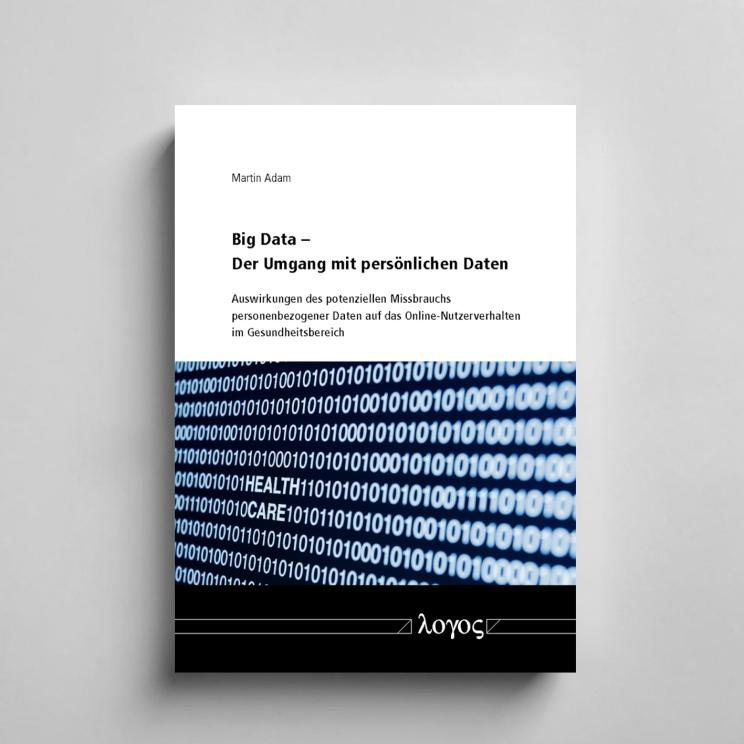Research Topics
Research Coorperations
Cooperation with the Federal Institute for Materials Research and Testing (BAM)
mdh and Bundesanstalt für Materialforschung und -prüfung – BAM -(Federal Institut for Materials Research and Testing) have formed a cooperation in the area of material and plastics technolgy and digital humanities. BAM is a scientific-technological federal authority with the federal Ministry of Economy and Climate Protection (BMWK). It is responsible for the future development of safety in technology and chemistry as well as for the implementation and evaluation of physical and chemical testings of materials and plants, including the promotion of knowledge and technology transfer.
The aim of the cooperation with mdh is to discover new interrelations in material and plastics technology. An important element of the joint research is the integration of machine learning (AI, Artificial Intelligence), to integrate research data from various disciplines intelligently.
mdh and Imperial College London have decided to form a collaboration for future projects. Especially in the areas of Audio-Experience-Design, Spatial-Hearing, Wearable-Embedded-Systems, Auditory-based Social-Interaction in the field of AR/VR, Well-being Design, Responsible AI und AR/VR CAD-Systems. Over the next months, various representatives of mdh and Imperial College will present joint activities which will later be published here.
Further Links:
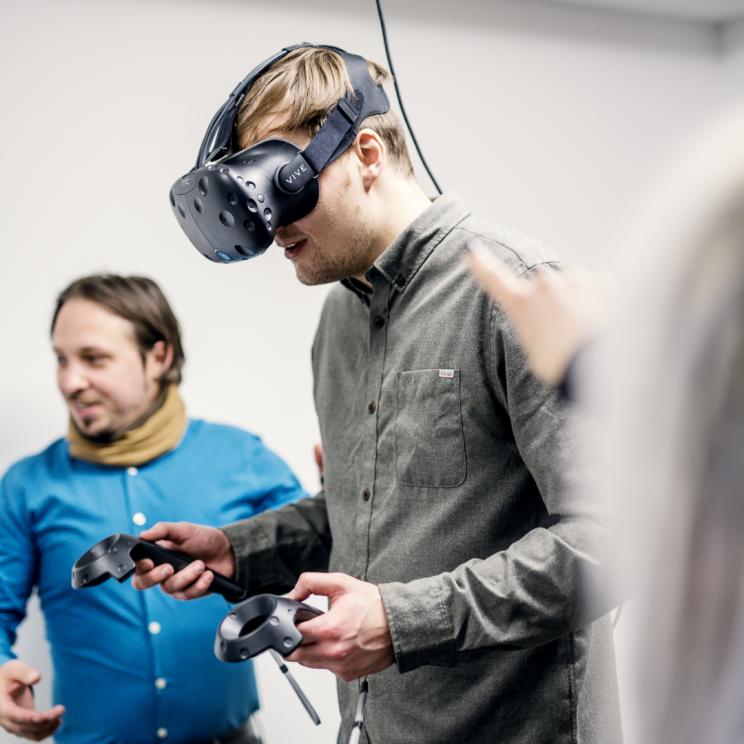
Imperial College London
mdh and Imperial College London have agreed to collaborate on future projects. In particular, areas such as audio experience design, spatial hearing, wearable embedded systems, auditory-based social interaction in AR/VR, well-being design, responsible AI, and AR/VR CAD systems represent initial topics for joint research projects. In the coming months, various representatives of mdh and Imperial College will jointly present corresponding activities, which we will also publish here.
Cooperation with Ludwig-Maximilian-University Munich (LMU) - The Phantom Haptics Device
Simulation of Haptic Feedback
Prof. Dr. Christoph Minnameier (Game Design)
The Phantom Haptics Device is a gadget that can simulate haptic feedback. Resistance and forces of digital 3D objects can actually be felt even when they are not physically present in reality. The chair for clinical neuropsychology at the LMU Munich, led by Professor Dr. Thomas Schenk, is using the gadget to carry out patient studies as part of their research. In cooperation with Professor Dr. Schenk, a concept for a controls and visualization software, which can be configuarated through script languages, was created and later implemented by the MD.I HUB.
Fashion Research
Sustainable Strategies for Ethiopian Design in Germany
Prof. Claudia Schwarz (Fashion Management)
Prof. Schwarz´s research project „Sustainable Marketing and Internationalization Strategies for Ethiopian Design on the German Market“ combines basic research in the area of sustainable international value chains with reality-based projects. In this particular project, bi-national trade relations in the clothing industry were established and investigated. Additionally, this cooperation was used to raise brand awareness of the Ethiopian textile and fashion industry in Germany.
The aim is to effectively combine sustainable and traditional production methods of Ethiopian fashion designers with requirements and demand of the German market.
The project was carried out in connection with ASA global, a development-oriented qualification program financed mainly by the German Ministry of Economic Cooperation and Development (BMZ). Other partner institutions included the German Society for International Cooperation, GIZ Addis Abeba. Recipients of scholarships were chosen by means of a competitive procedure. Research methods include qualitative empirical methods and guideline-based interviews as well as an in-depth secondary analysis of existing publications.
To complete the project, a workshop for local Ethiopian fashion designers was held, which served to impart relevant knowledge for the internationalization of the industry. The results of the research were published in the form of papers and are now included into the teachings and seminars of Professor Schwarz. Finally, a bachelor thesis with the title „Integration Measures for Local Ethiopian Arts and Crafts Within the Supply Chain“ was successfully realized on the basis of the project.
Dress Code
Playing the Fashion Game
Professor Nicole Süß (Fashion Management)
The project „Dresscode – Playing the Fashion Game“ in cooperation with Bundeskunsthalle Bonn was developed by Professor Süß who also acted as curator for the eponymus exhibition. The exhibition dealt with rules and provisions of fashion as well as its implications for social, professional or ethnic groups. Taking a playful approach, it challenges the use of dresscodes and traditional codifications. Using different questions and angles, it portrays international fashion as a mirror for society and the individual. Topics like authenticity or brand fetishism are scrutinized and visualized with exhibits by Keizo Motoda, Tom Sachs, Cindy Sherman, Oliver Sieber, Juergen Teller or Kyoichi Tsuzuki.
Professor Süß has collaborated in the production of the audioguide for the exhibition and she was also responsible for the background research regarding the exhibits, giving thematic advice to the author of the guide. Additionally, she produced the texts for the individual sections of the exhibition.
The results of her work were integrated into her project seminar „Design Projects“ as part of the program Fashion Design. Students did theoretical work on different forms of dress codes and looked at the current meaning of these codes, in particular with regard to the pandemic.
Cooperation with Exhibition Hall Bonn
Games Research
Die Adventurespiele von LucasArts werden bis heute gleichermaßen für ihre Narrative wie für ihr Puzzledesign geschätzt. Ziel der Untersuchung ist es der Frage nachzugehen, wie sich die Puzzles in den Spielen Maniac Mansion (1987), Day of the Tentacle (1993), Indiana Jones and the Last Crusade (1989) und Indiana Jones and the Fate of Atlantis (1992) klassifizieren lassen und in welcher Weise die unterschiedlichen Typen von Puzzles zur Erzählstruktur beitragen – oder diese auch behindern können.
Auf Grundlage bestehender Puzzletypologien (Fernández-Vara 2015; Wei & Durango 2019) sowie gestalterischer Prinzipien aus der Entwicklerpraxis (Falstein 2013; Gilbert 1989, 2014a, 2014b) wird eine Analyse durchgeführt, die gängige Puzzleformen – etwa Objektkombination, Dialogrätsel oder Kausalverknüpfungen – systematisch klassifiziert und im Hinblick auf ihre narrative Funktion untersucht. Beispiele werden aus o.g. Spielen gewählt.
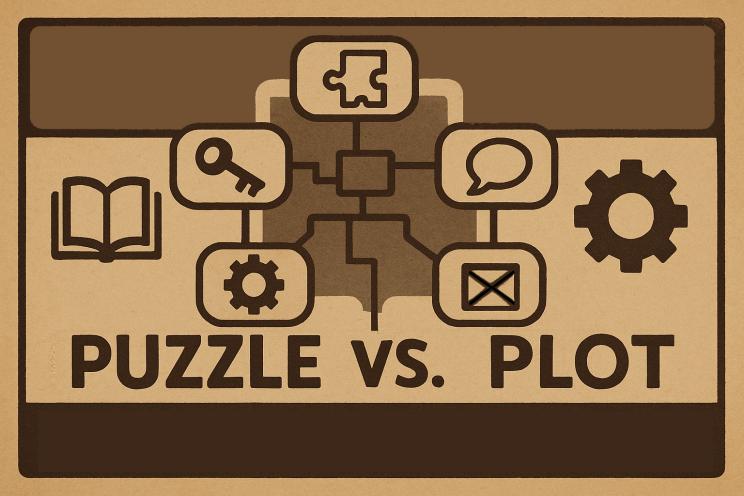
Zentrales methodisches Werkzeug ist dabei die Puzzle Dependency Chart, wie sie insbesondere von Lucasfilm Games verwendet wurde, um nicht-lineare Rätselstrukturen mit narrativen Zielen zu verbinden. Dabei soll deutlich werden, wo sich narrative und ludische Strukturen im Game Design ergänzen (oder ggf. auch in Konflikt geraten können). Exemplarisch werden dabei die Strukturen der o.g. Spiele verglichen.
Das Projekt entsteht im Rahmen eines geplanten Sammelbands herausgegeben von Prof. Dr. Dr. Rudolf Inderst und Dr. Manuel Stübecke, in dem die Spiele von LucasArts und ihr Erbe interdisziplinär betrachtet werden.
Ziel dieses Beitrags ist es, im Ergebnis eine funktionale Typologie von Puzzles zu entwickeln, die den Blick auf die Narrative einschließt. Zu erwarten ist, dass viele der Puzzles keinen oder nur einen geringen Zusammenhang mit dem Plot aufweisen, andere sogar als zentrale Momente im Plot fungieren können sind.
Interactive Multi-Agent Systems for Game Design
Professor Dr. Jan Kruse (Game Design/ Digital Film Design)
The project focusses on the Game Designer as a central player within an AI system and has the objective to generate levels for Games which are playable, comply with best-practice principles and at the same time follow and implement the intention of the Game Designer.
In particular, the Multi-Agent-System is used to test these aspects and to evaluate the quality of the individual levels. Thus, the design circle is closed, from the first idea and concept to the production of content and finally to the evaluation of this content. This project has already generated several conference contributions and articles in important peer-reviewed journals. Future steps envisage the expansion of the Multi-Agent System to new digital content and its design, with the Designer in-the-loop.

FORSCHUNG IM MEDIENMANAGEMENT
Resilienz oder Pflasterlösung? Eine kritische Analyse der Filmförderung in Deutschland während COVID-19
Prof. Dr. Helmar Baum, Medienmanagement
Die COVID-19-Pandemie traf die Filmbranche in Deutschland hart: Kinoumsätze und Produktionszahlen brachen massiv ein. Mit dem milliardenschweren Programm Neustart Kultur reagierten Bund und Länder auf die Krise. Ziel des Forschungsprojekts von Prof. Dr. Helmar Baum und Prof. Dr. Udo Bomnüter (Macromedia) ist die Bewertung der Wirksamkeit der Maßnahmen im Bereich der Filmförderung. Quantitative Daten und Experteninterviews dienen zur Analyse kurz- und langfristiger sowie unbeabsichtigter Effekte. Zudem wird geprüft, in welchem Maße die Maßnahmen zur Resilienz der Branche beitrugen, verstanden als transformative Anpassungsfähigkeit. Erste Ergebnisse deuten darauf hin, dass die Hilfen zwar abfedernd wirkten, jedoch Schwächen in Effizienz und Zielgenauigkeit aufwiesen. Die gewonnenen Erkenntnisse liefern Impulse für eine zukunftsfähige Medienpolitik, auch im internationalen Vergleich. Auf der World Media Economics and Management Conference (WMEMC) 2025 konnten im Mai bereits erste Ergebnisse einem größeren Fachpublikum präsentiert werden.
„Creaconability - Creativity as a driver of Economic Sustainability“
Prof. Dr. Mario Lucas (Digital Leadership), Prof. Britta Wiemer (Fashion Management)
Das Projekt „Creaconability - Crea:vity as a driver of Economic Sustainability“ untersucht, auf welche Arten und Weisen Kreativität als Wirtschaftsfaktor in Unternehmen und Regionen wirkt und wahrgenommen wird.
Ziel ist es, die Bedeutung von Investoren in mehr Raum für Kreativität und Raum für Innovationen als Umsetzung von Kreativität in Unternehmen und Regionen herauszustellen, um ökonomische Nachhaltigkeit zu fördern und zu sichern.
Creaconability verbindet wissenschaftliche Erkenntnisse zum kreativen Prozess mit dessen praxisorientierter Anwendung in der Wertschöpfung und Wertebildung und will dadurch Resilienz und Innovationskraft von Unternehmen und Regionen stärken.
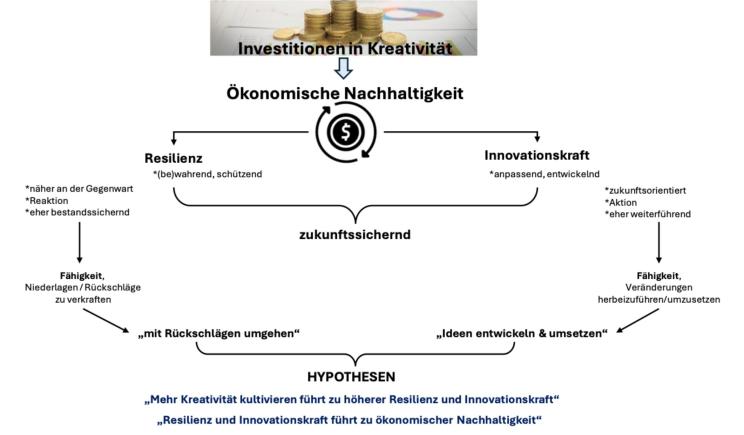
Puplications
Extended Reality in Business, Science, Society and Media
Immersive Technologies and Virtual Worlds: Fundamentals, Current State, Insights and Future Outlooks
Prof. Christian Malterer (Prof. Digital Film Design)
XR has long moved beyond gaming – many industries are now testing concrete applications and business models, including marketing, medicine, retail, research, education and the cultural sector. The book Extended Reality in Business, Science, Society and Media explores how Augmented, Virtual and Mixed Reality are evolving in Germany and the role they already play today.
The publication is based on an initiative that established an open XR think tank within the German immersive media scene. Its aim was to bring together voices from different fields and strengthen cross-sector exchange.
Through selected case studies and interviews with experts, the book highlights why XR is gaining relevance and which developments currently shape the field. It offers a clear orientation and a practice-focused perspective on the topic.
Click here for more information
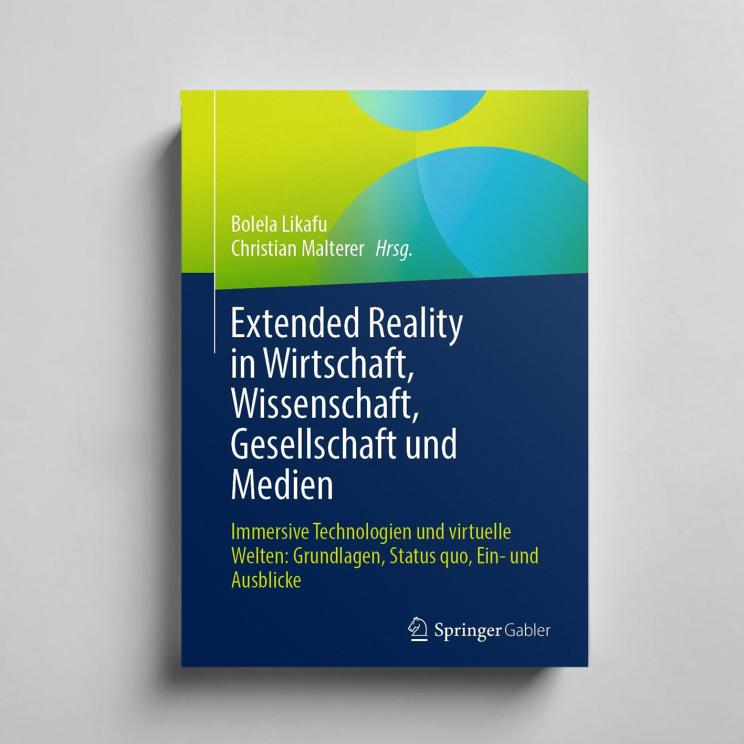
Omnichannel Branding
Digitalization as a basis for experience and relationship-oriented brand management
Professor Dr. Carola Elias (Digital Leadership)
Polished brand messages are out – they come across as artificial, standardized and usually miss the actual needs of their customers. Only products that manage to combine data and content individually and in a meaningful way for the customer, forming actual relationships, has the potential to become a cherished brand. Thus, the challenge for companies is to find the right balance between IT, Customer-Service, Sales and Research and Development and to create a meaningful brand experience.
Taking a 360-degree perspective from the viewpoints of companies, agencies, customers and science, the book shows how experience packages – oriented toward the individual customer – can be communicated in real time via different channels. The concepts and practical examples show clearly how to deal with the conflict of unpredictable customers, touchpoint overkill and big data mania and to find a clear strategy for their business.
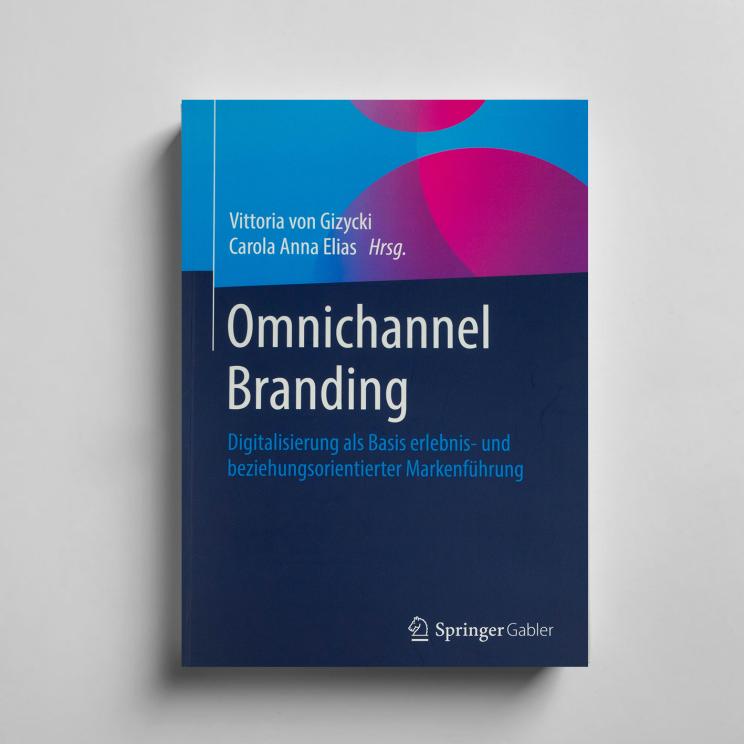
Cloud-Transformation
How Public Cloud companies change the industry
Professor Dr. Roland Frank (Digital Leadership)
The book "Cloud-Transformation" deals with the question of how the Public Cloud is changing the cost structure of digital business model and thus existing markets significantly. The connection between the applied cloud architecture, the organisation of a company and the price and business models enabled by these are presented in a clear and well-structured manner so as to allow their application in individual companies.
At the center of the book is the development of digital markets and the role of so-called zero-cost models. Thanks to this development, small teams can build up scaling business models worldwide with very low investment costs. The economic effects are presented using actual examples. Additionally, technical laymen get an overview of which factors are particularly important for the competitiveness of their digital business models and learn how managers can influence these. Furthermore, the book provides a concrete guideline for managers on how to implement the cloud transformation in their own company.
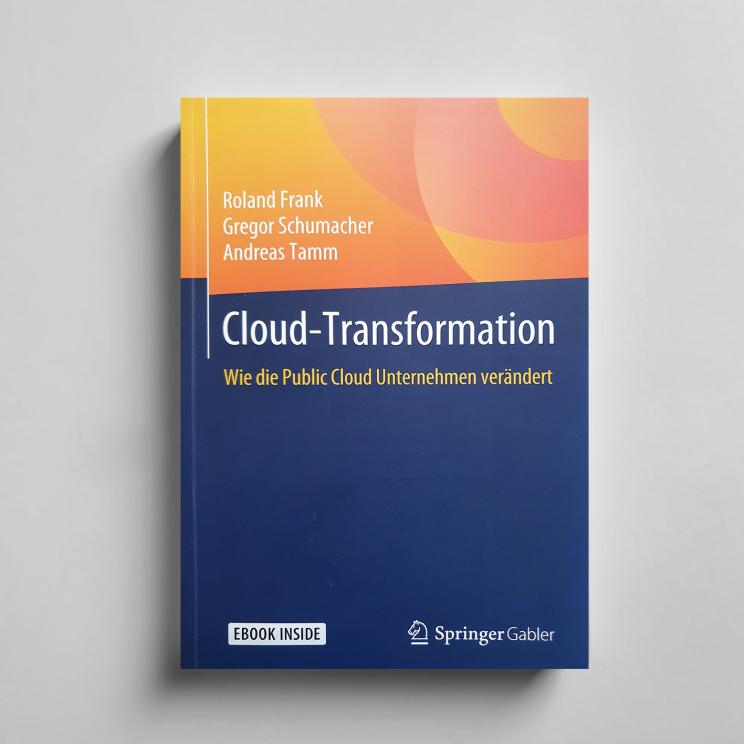
Elements of Digital Transformation
Professor Dr. Roland Frank (Digital Leadership)
More and more companies use APIs to participate in digital ecosystems and thus accelerate their own digital transformation toward a programmable economy.
The book "Bausteine der digitalen Transformation" (Elements of Digital Transformation) is a „translation tool“ for those who are technology enthusiasts but not actual engineers. It shows which core characteristics of APIs make the digital transformation of companies possible, how they can improve existing business models and create new business models. Additionally, the author talks about necessary organisational and cultural aspects as well as further success factors that are needed to integrate API successfully into company structures.
The book is not just a theoretical guide. Using five case studies of API transformations in renowned companies it investigates their practical implementation: Commerzbank AG, Deutsche Bank, Lufthansa Cargo, Euler Hermes und SDA SE Open Industry Solutions.
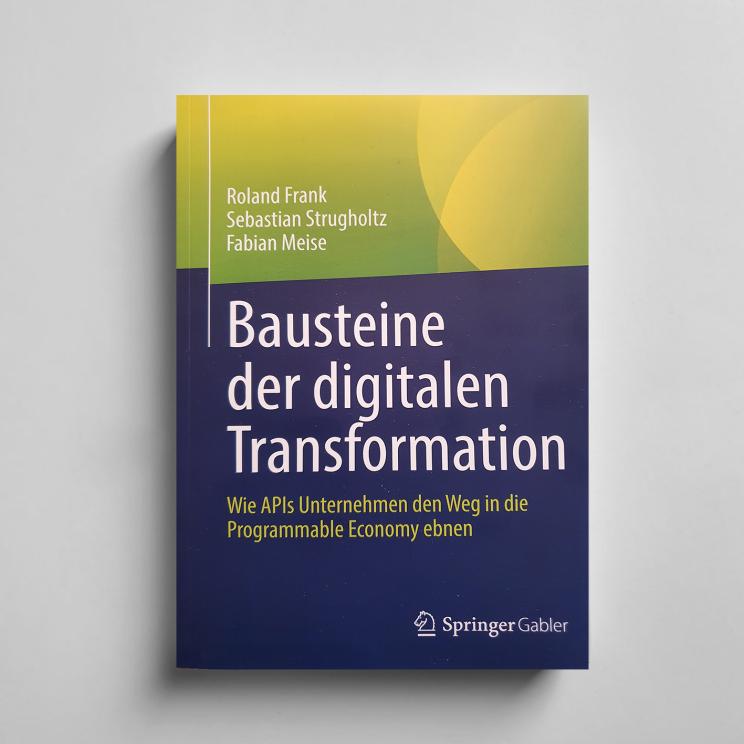
Designing with Artificial Intelligence
Conference and Proceedings
Professor Dr. Sebastian Löwe (Design Management)
Artificially intelligent systems have long since ceased to be Science Fiction. As users we are surrounded by an overwhelming number of intelligent applications which are integrated organically into the experience of using digital products, accelerating the speed of processes, supporting design development and even influencing them by leading the way. It is quite remarkable that his design process, which is often experienced subconsciously by the user, is not really a topic of design-centered academic discussion of user-oriented AI-based design.
The conference „Designing with Artificial Intelligence“(dai) tried to answer questions arising from the design process by, for and with machine learning algorythms and assistance systems, as for example the problem of how task, role and perception of designers expand when the machine makes active design decisions instead of just being a passive design tool. What happens when predictions regarding personal preferences, habits or user behavior become an essential part of the user experience or when the concept and realization of what we call creativity, is radically changed?
To answer these questions, designers, design managers and design thinkers from science and business, met at dai in September 2020 in a virtual conference room. In addition to the academic discussion, dai also supports experimental design formats. The collected documents of the conference are available an online document and can be downloaded free of charge.
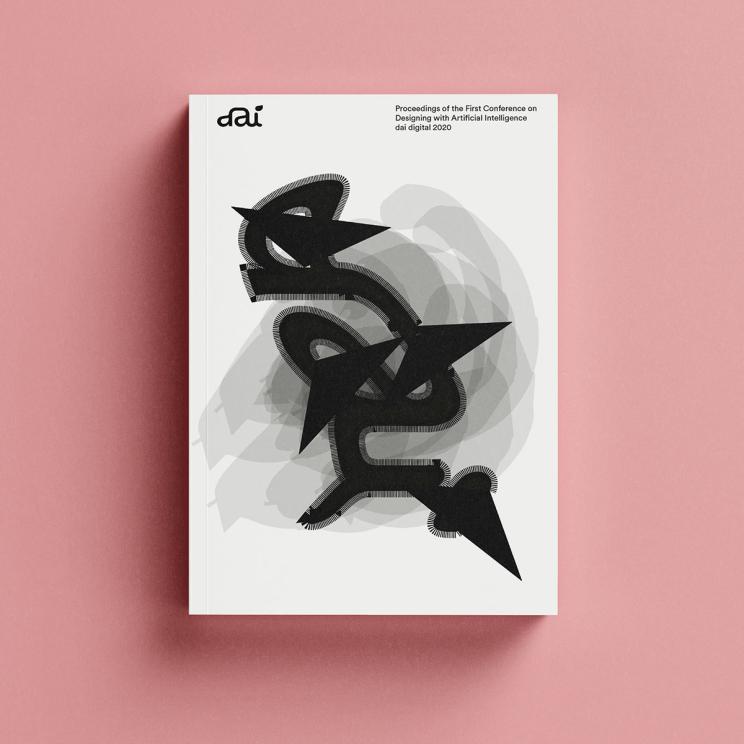
Design and artificial intelligence
Theoretical and practical basics of design with machine-learning systems
Professor Dr. Sebastian Löwe (Design Management)
Intelligent systems in design and are no longer science fiction. They are already widespread, taking over design tasks and fundamentally modifying the user experience. These applications for artificial intelligence (AI) face a gap in the theoretical reflection of intelligent design, which the book "Design and Artificial Intelligence. Theoretical and Practical Foundations of Design with Machine Learning Systems" aims to fill. It shows how the task, role, and understanding of designers expand when the machine takes over design decisions, when the concept and practice of what is called creativity is fundamentally shifted. Thus, it explains in an understandable way what is special about AI, what effects AI has on design, and how designers:inside can productively appropriate intelligent systems.
More information: http://designundki.de
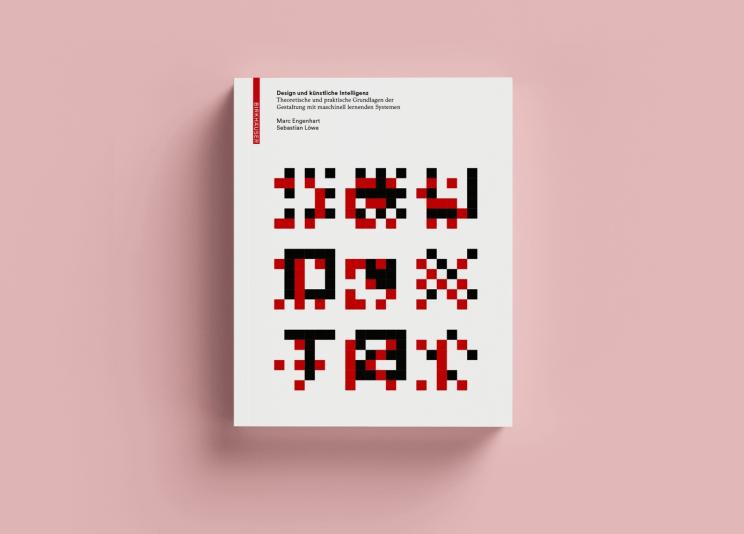
Big Data - The handling of personal data
Impact of the potential misuse of personal data on online user behavior in the health sector
Martin Adam
Big Data can, may and should exist, however, especially the user should decide more consciously in the future what he reveals and what not. The study Big Data - the handling of personal data deals with the topic of Big Data and the potential misuse of personal data in the health sector. The aim was to find out whether user behavior has changed since Edward Snowden's revelations about the ubiquitous spying on all kinds of data and to examine how the legal situation and regulations such as general terms and conditions are currently structured and what need there is for improvement.
For more Informations click here.
